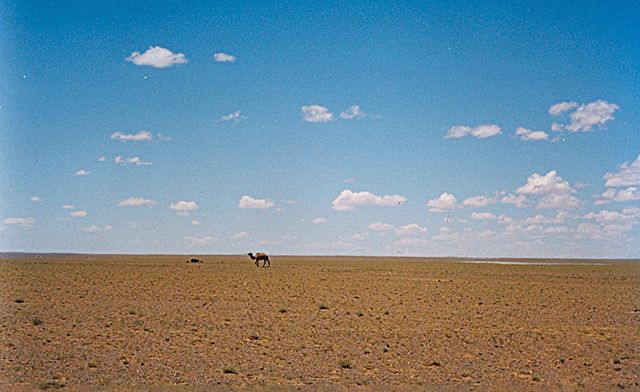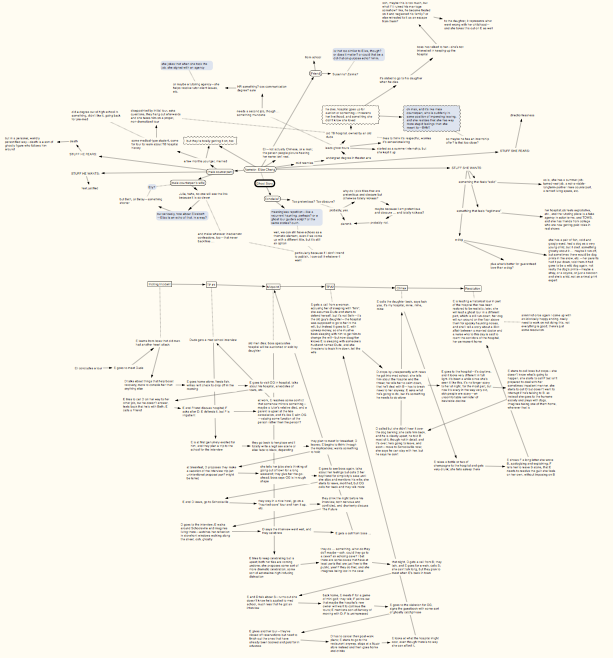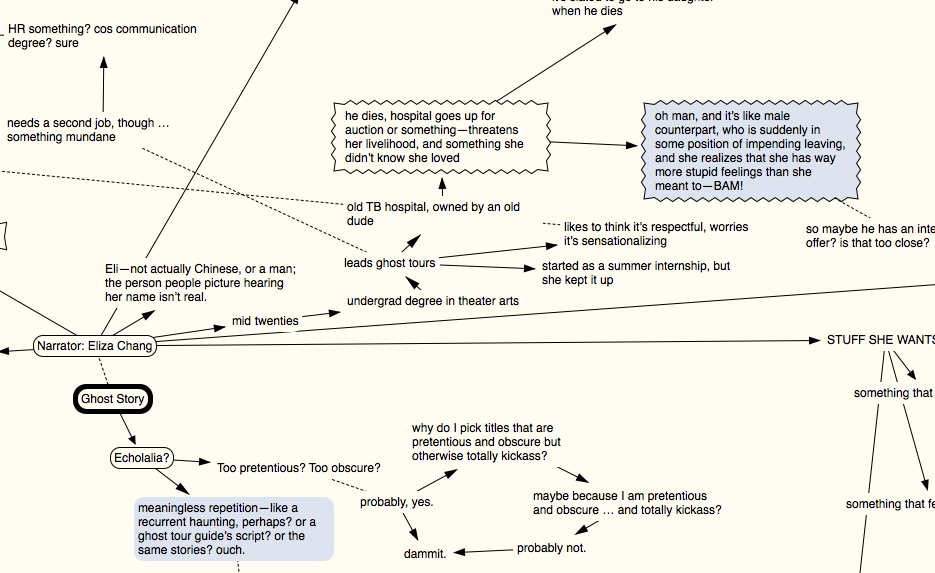 Edith Wharton, late in her writing career, wrote:
Edith Wharton, late in her writing career, wrote:
What is writing a novel like?
1. The beginning: A ride through a spring wood.
2. The middle: The Gobi Desert.
3. The end: A night with a lover.
I am now in the Gobi Desert.
I’ve been working on my novel-in-progress for just over a month, and just over 31,000 words. It’s hard to predict exactly how long it will turn out to be, but I can safely say that I am out of the spring wood … and I think I would know if I’d reached the night with an unidentified lover.
So this must be the Gobi Desert.
I don’t often watch survival-type shows—you know, Man Vs. Wild, Survivorman—because I am easily squigged out by survival. I can’t even think about 127 Hours (which I never saw) without having the impulse to curl up in the nearest corner and watch YouTube cats until the bad thoughts go away. But on the occasion I do end up watching something survival-related, a common theme shows up: keep moving. It makes sense. Unless you have the resources to set up long-term sustainable camp where you are, the longer you take, the more you expend.
This, I’ve found, holds for the novelist’s Gobi Desert, too.
It’s all about momentum, about keeping the story and the characters fresh and alive. Stagnation—true stagnation—has never helped anything. That’s not to say I subscribe to the write every day, without fail philosophy, because I don’t; I think stepping away to contemplate can be, at times, just as productive as actually putting words on the page. Sometimes we need to pause and think things through, because if we don’t, we might well end up with days, weeks of wasted work we could’ve avoided if we’d taken that time for thought.
I don’t need to write every day to make my way through the Gobi Desert, but I do need to have the writing on my mind every day. Even a few minutes, just to keep it present.
Of course, three hours of thought rarely gives the same satisfaction as three hours of writing, because there’s something wonderful about seeing that quantifiable progress. It often feels more valid, too. I can post on Facebook, I wrote two thousand words on my novel today! and my internet friends will understand at least to a point what that means, maybe even leave me little Yay! comments. But if I said, I spent two hours drinking tea and talking to my cats about my novel, I’d be lucky to get a lol.
It’s hard to measure the worth of contemplation, and I think that makes it easy to brush aside as a form of procrastination (which, don’t get me wrong, it sometimes is). But when you’re making your way through that Gobi Desert, you don’t do yourself any favors by charging boldly onward without stopping now and then to make sure you still have a sense of where you’re going and how you’re going to get there.
After all, what good is a night with a lover if you retire to the bedroom, begin to undress, and discover that your toes are purple with frostbite?

